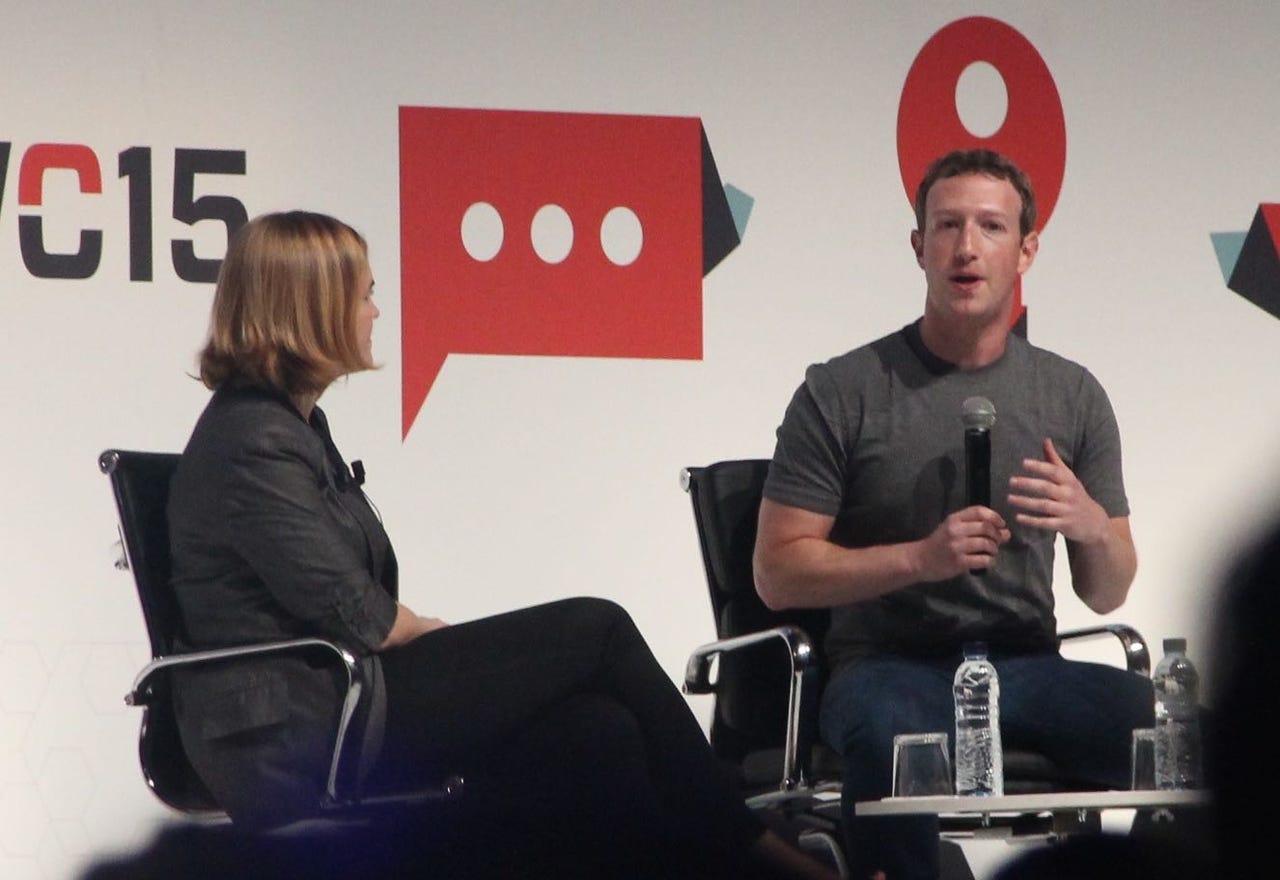Facebook 'wants to help' telcos facing woes due to Facebook

Despite the rise of over-the-top players like Facebook replacing much of the traditional voice and SMS services that were the bread and butter of mobile telecommunications companies historically, Facebook CEO Mark Zuckerberg has said the social networking giant wants to work with telcos to ensure that WhatsApp doesn't bring about the end of mobile operators.
Speaking at Mobile World Congress (MWC) in Barcelona on Monday, Zuckerberg recognised that while Facebook and Google are working "at the fringe" and experimenting with balloons and planes to get more people connected to the internet, most of the work in getting the world connected is being done by carriers investing billions in their networks across the world.
"We can help, because Facebook is one of the primary apps people want to use, so it drives data usage," he said.
"The business for operators used to be voice and messaging, but it is increasingly shifting to data."
He said that operators recognise there will be messaging apps replacing voice and SMS services, but that it is about telcos "evolving" their business model at the right speed.
"People want to use these different services, so people are going to pay. It's just what you charge for. I think over time, it'll just be data and other services," he said.
"Building up the infrastructure to connect everyone in the world is very expensive. We're very aware of that. And we want to help them out."
Facebook has been doing this with the Internet.org app that is designed to get people in countries that haven't previously had access to the internet to develop an understanding of the benefits offered by the internet. The company has been partnering with local telcos in developing countries to get the app out and drive up internet usage on the new networks being built.
Zuckerberg admitted that the app deliberately doesn't have Messenger so that the telcos building new networks could get some revenue back while data usage is lower in these countries.
"We have things like Facebook Messenger and WhatsApp. That's not part of Internet.org, because that would be too cannibalistic," he said.
"[But] as we roll this out, not only do more people start using data [but] ARPU [average revenue per user] goes up."
Telenor CEO Jon Fredrik Baksaas said there is still a "touchy relationship" between mobile operators and Facebook over the rise of over-the-top apps undercutting traditional telco revenues.
"This is a kind of point of tension between the operator community and Facebook, because we don't want to see a bit of that revenue stream move too quickly," he said.
"The internet model is having the perception of having everything for free. It doesn't happen for free, because the connectivity part of getting it is that expensive; this cost structure is borne by the operators."
AirTel Africa CEO Christian de Faria said the best path forward is for telcos to work with Facebook.
"Facebook is here to stay, and instead of trying to avoid it, let's work together," he said.
Earlier on Monday, Deutsche Telekom CEO Tim Hoettges said European regulators should regulate companies like Facebook just like traditional telecommunications operators in order to level out the playing field.
Zuckerberg said he doesn't have a view on that, because he isn't a regulator.
